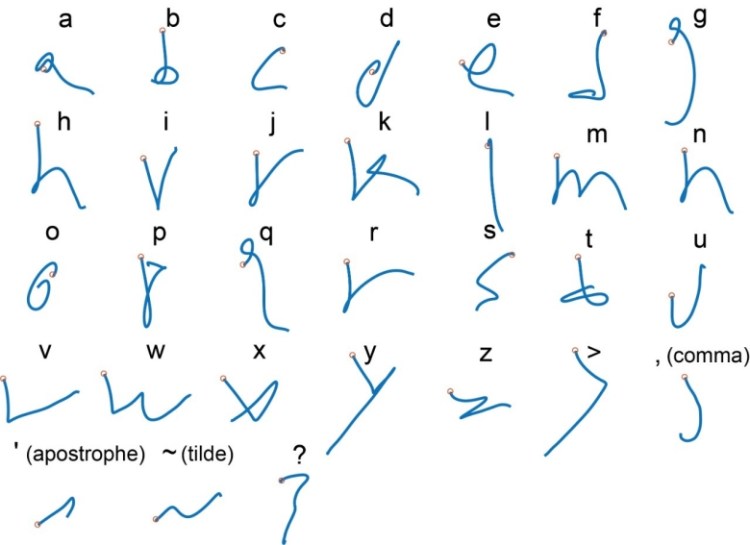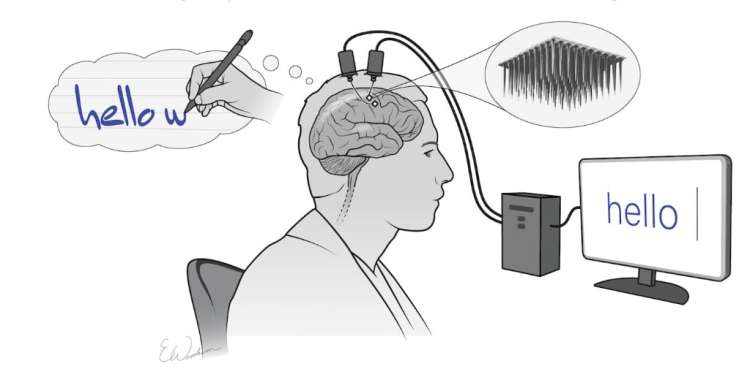Brain Implant Using AI Software Allows Paralyzed Man to Translate His Thoughts Into Handwriting and Text
Researchers at Stanford University have made the remarkable discovery that brain-computer interface (BCIs) using AI software, when implanted into the human brain, can allow those with missing or paralyzed limbs to write, type, and text using their thoughts. One such study participant demonstrated his thought-to-paper handwriting for the team with 94% accuracy.
Here we developed an intracortical BCI that decodes attempted handwriting movements from neural activity in the motor cortex and translates it to text in real time, using a recurrent neural network decoding approach. With this BCI, our study participant, whose hand was paralysed from spinal cord injury, achieved typing speeds of 90 characters per minute with 94.1% raw accuracy online, and greater than 99% accuracy offline with a general-purpose autocorrect.

Doctors Jaimie Henderson and Krishna Shenoy of the study, who have been working to develop BCIs since 2005, and team members Francis R. Willett, Donald T. Avansino, Leigh R. Hochberg are very pleased with the results thus far.
This approach allowed a person with paralysis to compose sentences at speeds nearly comparable to those of able-bodied adults of the same age typing on a smartphone,…The goal is to restore the ability to communicate by text.
The team stated that they intend to use BCIs in other ways to address other conditions, such as the inability to speak.

…the team intends to work with a participant who cannot speak, such as someone with amyotrophic lateral sclerosis, a degenerative neurological disorder that results in the loss of movement and speech.The new system could potentially help those suffering from paralysis caused by a number of conditions,
This specialized software is currently only being used in very tightly controlled clinical trials and is not yet available commercially.
via Science Alert






